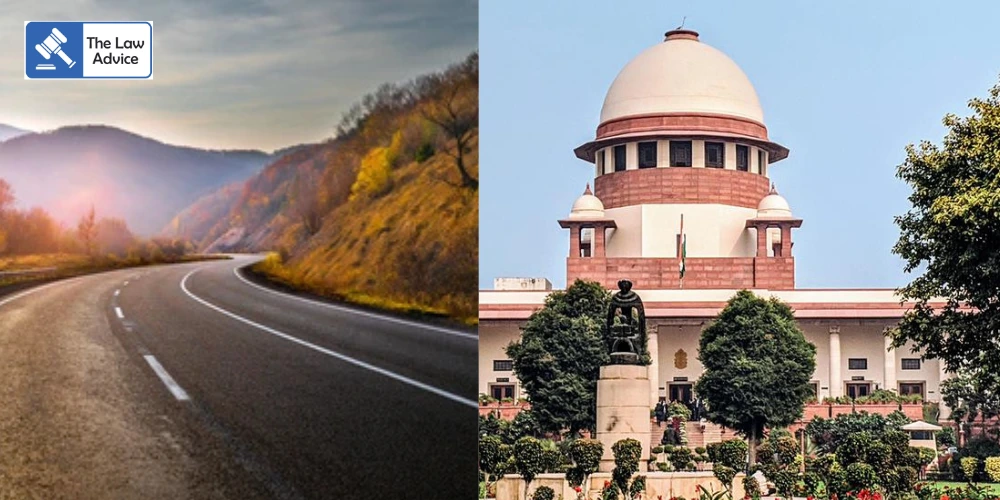
The Supreme Court has issued notice on the National Highways Authority of India (NHAI)’s review petition challenging the judgment that declined its plea for prospective application of the 2019 ruling in Union of India v. Tarsem Singh, which had extended the benefit of solatium and interest to land acquisitions made under the National Highways Act, 1956 (NH Act).
A bench comprising Justice Surya Kant and Justice Ujjal Bhuyan passed the order on Monday.
Background: Tarsem Singh Judgment
In Union of India v. Tarsem Singh (2019), a bench of Justices Rohinton Nariman and Surya Kant had struck down Section 3J of the NH Act, 1956, to the extent it excluded the payment of solatium and interest as provided under the Land Acquisition Act, 1894. The Court held that the benefits under Sections 23(1A), 23(2) (solatium) and Section 28 (interest) of the Land Acquisition Act would apply equally to acquisitions made under the NH Act.
Following the 2019 verdict, NHAI filed a petition seeking clarification that the Tarsem Singh ruling should apply prospectively, arguing that extending its effect to completed acquisitions—where compensation had already attained finality—would reopen settled matters and impose a substantial financial burden on the authority.
Rejecting NHAI’s plea for prospective application, the bench of Justices Kant and Bhuyan had observed that such a clarification would defeat the very purpose of the Tarsem Singh judgment, which aimed to correct discrimination caused by the exclusionary clause in Section 3J.
The Court noted that the objective of the Tarsem Singh ruling was to eliminate the inequality between two sets of landowners—those whose lands were acquired by NHAI between 1997 and 2015, and those compensated under the Right to Fair Compensation and Transparency in Land Acquisition, Rehabilitation and Resettlement Act, 2013 (RFCTLARR Act) after January 1, 2015.
“The broader purpose behind Tarsem Singh was to resolve and put quietus upon the quagmire created by Section 3(j) of the National Highways Act, which led to unequal treatment of similarly situated individuals… Both equity and equality demand that no such discrimination be permitted, as allowing it would be unjust,” the Court had remarked.
It further emphasized that when a statutory provision is declared unconstitutional, the continuation of disparity that violates Article 14 must be rectified, especially where it impacts a specific group of citizens.
Addressing NHAI’s contention that retrospective application would impose a financial burden of nearly ₹100 crores, the Court said the argument was unconvincing, noting that NHAI had already paid similar compensation in numerous other cases.
“If this burden has been borne by NHAI in the case of thousands of other landowners, there is no reason it should not be shared in this instance. The financial burden of acquiring land cannot override the constitutional guarantee under Article 300A,” the bench observed.
The Court also pointed out that since most national highway projects are developed through public-private partnerships (PPP), the ultimate cost would not fall on the exchequer but would be passed on to the project proponents, and ultimately to commuters, particularly from the middle and upper-middle class segments using private vehicles and commercial transport.
After dismissing the earlier appeals, the Court had directed the competent authority to calculate and disburse solatium and interest in accordance with the Tarsem Singh ruling. Subsequently, NHAI filed the present review petition, challenging the decision.
Case Title: National Highways Authority of India v. Tarsem Singh & Ors.
Diary No.: 44096/2025
Website designed, developed and maintained by webexy